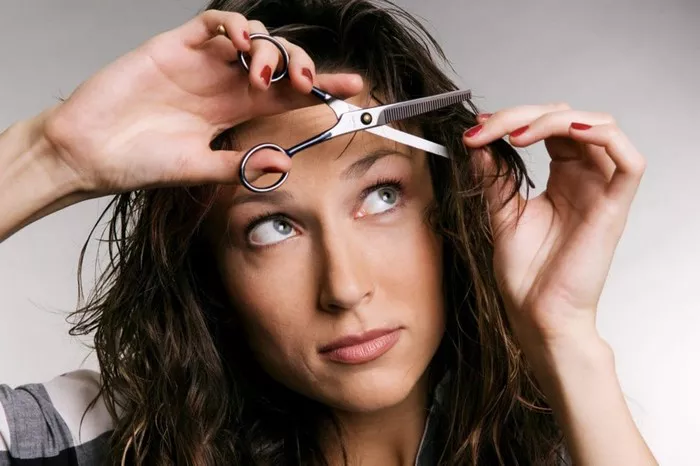Experiencing hair fall can be distressing, especially when it seems to occur at the slightest touch. While shedding a few strands is a normal part of the hair growth cycle, excessive hair loss can raise concerns about underlying issues. In this article, we will delve into the possible reasons why your hair may fall out just by touching it and explore effective solutions to address this common concern.
Understanding the Hair Growth Cycle:
Before delving into the reasons for hair fall, it’s essential to grasp the basics of the hair growth cycle. Hair goes through three main phases: anagen (growth phase), catagen (transitional phase), and telogen (resting phase). Shedding is a natural part of the telogen phase, with individuals typically losing 50 to 100 hairs per day.
1. Excessive Hair Shedding vs. Hair Breakage:
It’s crucial to differentiate between excessive hair shedding and hair breakage. Shedding occurs when hair reaches the end of its life cycle, while breakage involves the snapping of hair strands. If you notice short strands or split ends in the fallen hair, it may be a sign of breakage, possibly caused by external factors like heat styling or chemical treatments.
2. Potential Causes of Excessive Hair Shedding:
Several factors can contribute to increased hair shedding, ranging from lifestyle choices to underlying health conditions. Some common causes include:
a. Hormonal Changes:
Hormonal fluctuations, such as those during pregnancy, childbirth, menopause, or thyroid imbalances, can impact the hair growth cycle and lead to increased shedding.
b. Nutrient Deficiency:
Inadequate intake of essential nutrients, such as iron, zinc, and vitamins, can affect hair health. A balanced diet rich in these nutrients is crucial for maintaining strong and resilient hair.
c. Stress and Anxiety:
Chronic stress can disrupt the normal functioning of hair follicles, pushing more hair into the resting phase and causing increased shedding.
d. Medical Conditions:
Certain medical conditions, such as alopecia areata or autoimmune disorders, can result in hair loss. Consultation with a healthcare professional is essential for accurate diagnosis and appropriate treatment.
e. Medication Side Effects:
Some medications, including certain antidepressants, blood thinners, and chemotherapy drugs, may have hair loss as a side effect.
3. Overstyling and Heat Damage:
Frequent use of styling tools, such as flat irons, curling irons, or blow dryers, can weaken the hair shaft and lead to breakage. Additionally, tight hairstyles that pull on the hair, such as ponytails or braids, may contribute to hair loss.
4. Chemical Treatments:
Chemical processes like hair coloring, perming, or straightening involve the use of harsh chemicals that can weaken the hair and lead to breakage. Overuse or improper application of these treatments may result in excessive hair loss.
5. Improper Hair Care:
Using the wrong hair care products or neglecting proper hair care practices can contribute to hair fall. Harsh shampoos, excessive washing, and insufficient conditioning can strip the hair of its natural oils, leaving it brittle and prone to breakage.
Solutions to Reduce Hair Fall:
Addressing excessive hair fall involves identifying the underlying cause and adopting targeted solutions. Here are some effective strategies:
Balanced Diet:
Ensure you are getting a well-rounded diet rich in vitamins, minerals, and proteins. Consider incorporating foods like leafy greens, nuts, fish, and lean meats to support healthy hair growth.
Stress Management:
Practice stress-reducing techniques such as meditation, yoga, or deep breathing exercises to manage chronic stress and promote overall well-being.
Gentle Hair Care:
Choose mild, sulfate-free shampoos and conditioners that cater to your hair type. Avoid excessive heat styling and opt for protective hairstyles to minimize breakage.
Consult a Healthcare Professional:
If you suspect underlying health issues are contributing to hair loss, consult with a healthcare professional for a comprehensive evaluation and appropriate treatment.
Hair Supplements:
In cases of nutrient deficiency, supplements like biotin, iron, or omega-3 fatty acids may be beneficial. However, it’s essential to consult with a healthcare provider before starting any supplements.
Limit Chemical Treatments:
If possible, reduce the frequency of chemical treatments and choose gentler alternatives. Ensure proper application and follow recommended waiting times to minimize damage.
See Also: Can Multivitamins Halt Hair Loss: Things You Need To Know
In conclusion
Hair fall when touched can be attributed to various factors, ranging from internal health issues to external influences like styling practices. Identifying the specific cause is crucial for implementing targeted solutions. Adopting a holistic approach that addresses nutritional needs, stress management, and proper hair care can contribute to healthier, more resilient hair. If concerns persist, seeking professional advice ensures a thorough assessment and tailored recommendations for optimal hair health.


